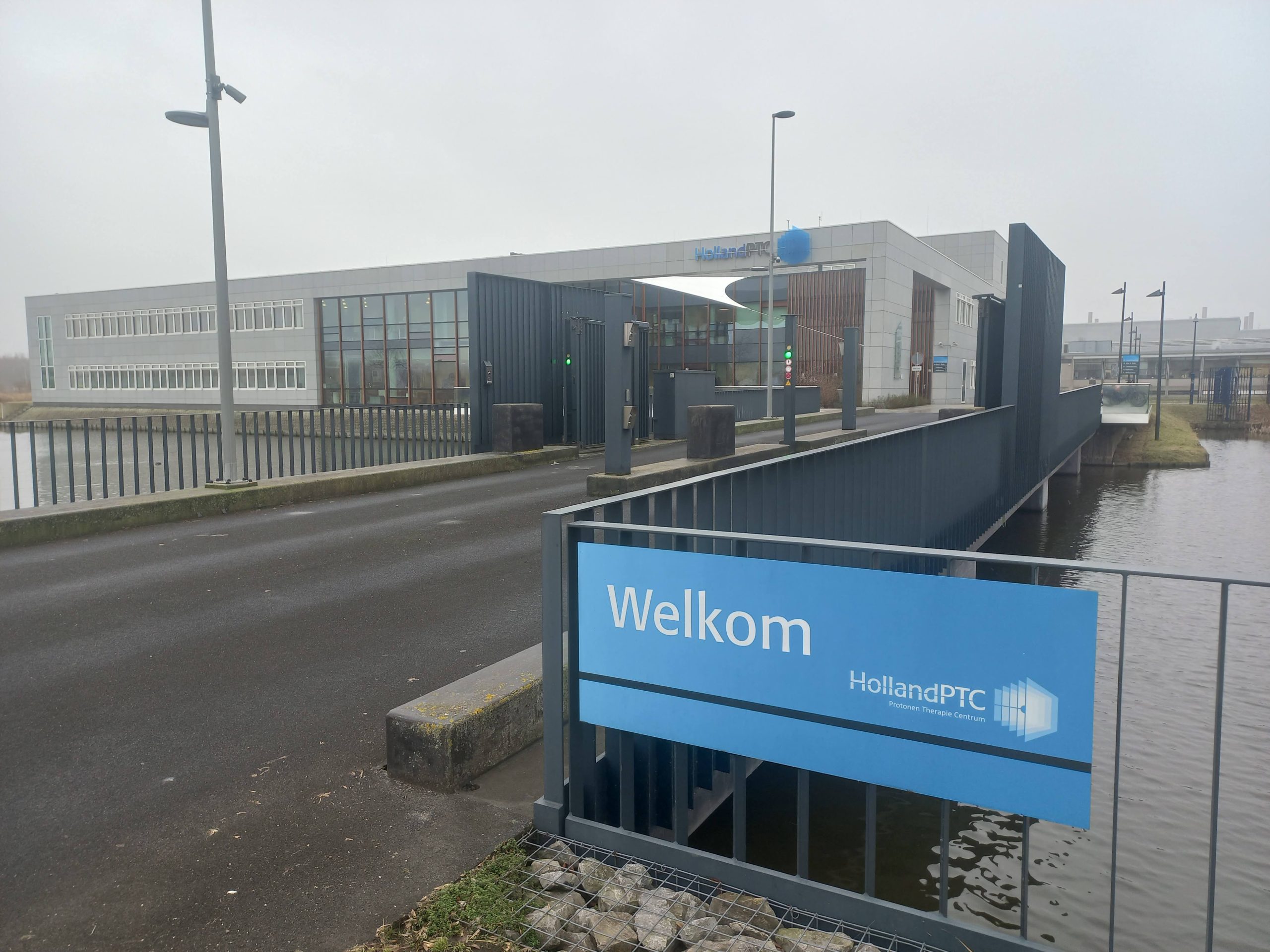While HollandPTC has been in troubled waters since its opening in 2018, TU Delft continues to pump money into it. This is the view of the NRC newspaper. Rector Magnificus Tim van der Hagen still believes that this is the right thing to do, he told the newspaper.
HollandPTC. (Photo: Saskia Bonger)
HollandPTC, located next to the TU Delft Reactor Institute, was intended to be a showpiece. In reality, it has become a headache. This is an observation by the NRC newspaper (in Dutch) from internal information acquired from TU Delft. According to TU Delft, at 450 the number of patients last year was significantly lower than the expected 600.
The newspaper found out that this amounted to an accumulated loss of EUR 26 million in 2021. A financial forecast that year predicted a possible loss of EUR 70 million in 2033. The clinic uses proton therapy to treat cancer patients which, in theory, causes far fewer side effects than radiotherapy.
Injections of money
TU Delft is keeping the clinic going with injections of money. TU Delft’s 2022 Annual Report shows that, as the LUMC and the Erasmus MC, TU Delft is the guarantor of one third of the loan from the European Investment Bank (EIB) that funded the clinic’s start. Should the clinic go bankrupt, TU Delft and the two medical centres would each lose more than EUR 30 million.
The NRC reports that financial experts at TU Delft question the legal foundations of that financial support. May you put money from the state in an unstable company?
- Also read: the report written by Delta in 2017 before HollandPTC opened its doors. ‘We are zigzagging through a maze of hallways with 3-metre-thick concrete walls, making our way to the heart of the proton clinic.’
Break down walls
In the newspaper article, Rector Magnificus Tim van der Hagen says that he firmly believes in the clinic. He believes that it represents something bigger: ‘The way that modern universities should place themselves in the world. They should not only invent things in stuffy laboratories, but “bring innovations to society and play a role outside the academic world”.’ The Rector wants to ‘break down walls’.
Van der Hagen says that TU Delft does not put money into things to make money, but looks at the research potential and the societal function. He believes that HollandPTC meets these criteria. The clinic is ‘crucial’ for TU Delft scientists. In a memo that the NRC obtained, TU Delft refers to ‘more than 20 research projects carried out at HollandPTC’.
Sceptics
Opinions about the potential of the clinic were divided from the start. NRC reports that opponents believe that there is not enough scientific evidence of the outcomes of the expensive cancer treatments given by the clinic.
In the NRC article, Jan Lagendijk, Professor Emeritus of Radiotherapy, says that proton therapy is mostly successful in treating large tumours. He claims that his critical position before the building of the clinic cost him his advisory position. Lagendijk says that early testing means that large tumours are becoming less common. Sceptics then wonder if there is a future for proton therapy.
Culture of spending money
The NRC uses the HollandPTC case as an example of the culture of spending money that it says pervades TU Delft. It asserts that TU Delft receives more money from the Government and industry than the other two technical universities together.
There are countless companies on campus that create plenty of opportunities for collaboration. This is creating a ‘culture of spending a lot of money easily’. The NRC bases this assertion on intervieww with eight people who are or have held high positions at TU Delft. This has led to risks being taken and the financial accountability to often be below par.
Having seen internal documents, the NRC also says that expense claims too show the ease of money being spent. It cites regular expensive lunches, taxi rides amounting to EUR 300 between Delft and Rotterdam, and expensive work-related travel not booked by the regular travel agency used by TU Delft. A few dozen employees are said to earn a lot more than is usual in the university world without this being stated in the annual reports.
The Inspectorate of Education is also closely examining TU Delft’s finances. The Inspectorate’s report, that also looks at transgressive behaviour, is expected to be issued in March.
In a response, that the NRC placed in full below the investigative article, TU Delft says that it does not recognise itself in the picture painted by the newspaper. The full statement is available on TU Delft’s website (in Dutch).
- Also read: the NRC has previously published a story about the Mining building that TU Delft is alleged to have sold below the market value to the Royal HaskoningDHV engineering company. In response to Delta, TU Delft said that it was not that bad.



Comments are closed.